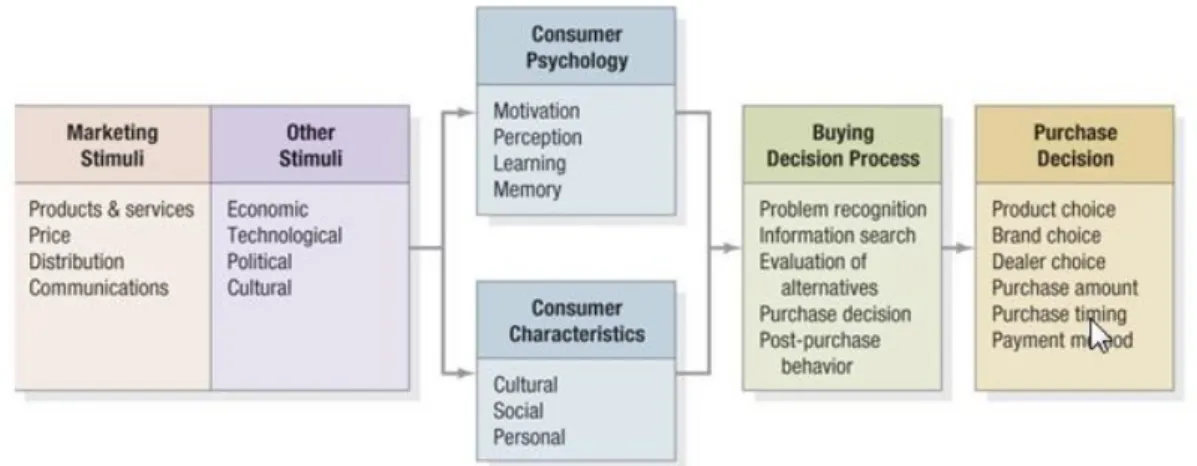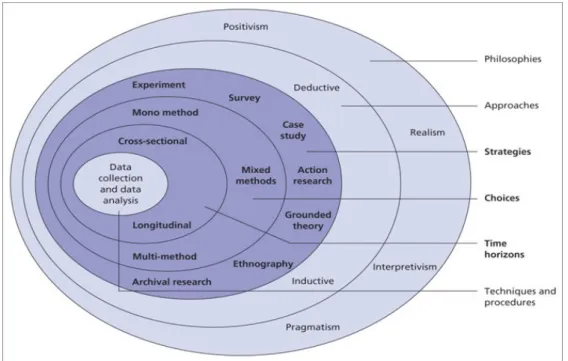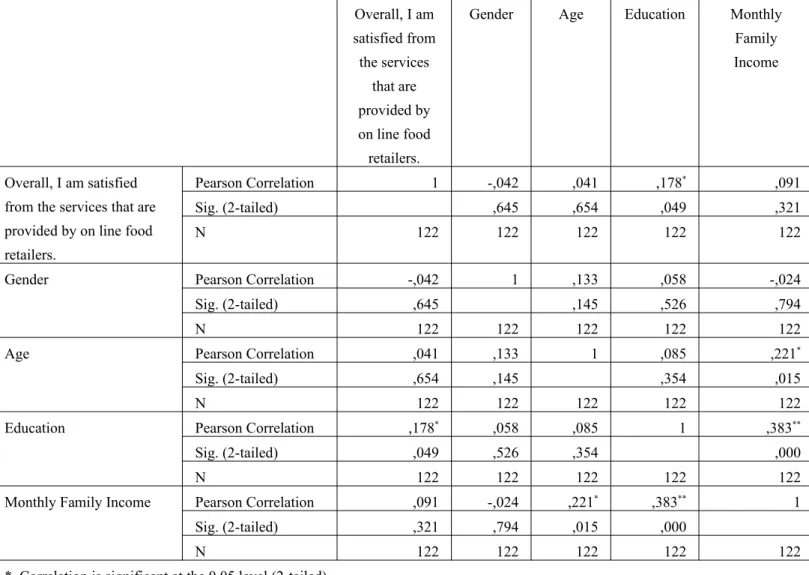Free access to the full text for study and reading does not in any way mean that the author/creator assigns its intellectual property rights, nor does it permit reproduction, republication, copying, storage, sale, commercial use, transmission, distribution, publication, performance, downloading, uploading, translating, modifying in any way any part or abstract of the dissertation, without the express prior written consent of the author/creator. The aim of this dissertation was to investigate consumer intentions and satisfaction in online grocery shopping in Greece. Primary data analysis was performed using SPSS and included parametric tests (T-tests and one-way ANOVA) and correlation analysis.
They seem to prefer traditional ways of shopping, such as super markets, shops, etc. Despite the fact that the survey was conducted during the period of the COVID 19 pandemic, which triggered a lot of digital transactions, online grocery shopping in Greece remained relatively low. The most important perceived benefits of online grocery shopping likely to influence consumer behavior are (in order of importance): convenience and time savings.
The research also showed that consumer satisfaction with the services of online food retailers is influenced by several factors, such as: trust, the appearance of the website and perceived benefits (saving time, fast delivery of products and offers). Finally, it was found that demographic characteristics of the participants, such as gender, age, and family monthly income, did not influence their purchasing behavior.
Introduction
- Aim and research objectives
- Rationale and added value of the project
- Chapter outline
- Chapter 2: Literature Review
- Introduction
- Consumer behavior
- Consumer behavior in the food industry
- On line shopping behavior- key aspects
- On line Customer satisfaction
- Consumer’s response and satisfaction regarding on line grocery shopping
- Summary
To investigate the key drivers of customer satisfaction in online grocery shopping in Greece. In general, the literature emphasizes that online customer satisfaction is influenced by several factors, revealing its complex nature. Lee and Lin (2005) also found that online customer satisfaction is related to positive purchase intentions.
Pham & Ahammad (2017) also mention that online customer satisfaction is positively associated with repurchase intention, positively. Finally, Rita et al (2019) also developed an analytical framework with the factors that shape online customer satisfaction. Online customer satisfaction leads to higher levels of commitment to the premises of the firm, as well as to positive purchase behavior intentions.
At the same length, Hansen (2006) investigated the determinants of consumers' repeat online grocery purchase intention. Online grocery experience leads to online customer satisfaction, which in turn leads to repurchase intention and positive e-WOM. Online grocery shopping experience is formulated by level of customer service, website experience, product experience, delivery.
The online grocery shopping experience leads to online customer satisfaction, which in turn leads to repeat purchase intention and positive e-WOM.

Research Methodology
- Introduction
- Research paradigm
- Research methods and process
- The questionnaire
- Methods of analysis
- Research limitations
Objectives of the research The aim of the research focuses on measuring and predicting. Considering the characteristics of each paradigm in the current article, the positivist approach was used. More specifically, the author decided to use quantitative research methods because: 1) they lead to the use of large and representative samples (Malhotra & Bricsk focus on measurements and in the statistical interpretation of the primary data (Robson, 2007; Saunders et al. ., 2012), and 3) almost all authors who investigated the factors influencing online grocery purchasing behavior in the literature used quantitative research techniques.
A simple random sampling technique was used in which all consumers had one and the same opportunity to participate in the survey (Malhotra & Bricks, 2006). In addition, the questionnaire collected data on the demographic characteristics of the participants in terms of gender, age, education and family monthly income. Second, parametric tests were used to test whether responses were differentiated by participant demographic characteristics.
As stated by Saunders et al. 2012), parametric tests are one of the most efficient approaches to investigate the impact of demographics on consumers. The main research limitations of the current project include the following points: a) quantitative research focuses exclusively on measurements and not on understanding the scientific phenomena investigated (Robson 2007; Aaker, 2004), b) can influence the online shopping behavior of Greek consumers due to factors not mentioned in the current project and c) the sample size was relatively small.

Analysis of findings
Introduction
Sample demographics
Descriptive statistics
- Shopping enjoyment
- Perceived benefits
- Trust and Safety
- Web site aesthetics and functionality
- Behavioral intentions
- Satisfaction
- Frequency of purchasing
The same feeling holds for the social environment (friends and family) of the participants (see table 4.2). The most important perceived benefit that probably drives participants' online shopping behavior is convenience (mean: 3.5), followed by time saving (mean: 3.4) and sufficient range of product choices (mean: 3,2). It's easy to communicate with online grocery retailers about issues related to the services I need.
Furthermore, trust in the payment systems and websites of online food retailers plays a critical role in consumer behavior. The overall reliability of online food retailers was at satisfactory levels, indicating the maturity of the Greek digital market (see table 4.4). The aesthetics of online food retailers' websites were rated as attractive (average: 3.4).
The vast majority of consumers consider themselves to be able, in terms of technical knowledge, to complete online transactions (average: 3.6). Finally, it is interesting to note that overall consumer satisfaction with online grocers' services was relatively high (average: 3.5). The frequency of online grocery shopping ranged from moderate to low levels, as 42% of participants indicated that they do not buy groceries via the Internet.

Parametric tests
- Gender (T-tests)
- Age
- Educational background
- Income
Correlations
More specifically, as shown in Table 4.14, strong and statistically significant relationships were found between satisfaction and: future purchase intentions, intentions to recommend online grocers to other people, and loyalty intentions. The analysis also found that satisfaction is related to trust, indicating that trust is a key driver of online shopping behavior (see Table 4.15). The visual appearance of an online grocer's website is also significantly related to overall satisfaction.
The strongest associations were found with: time saving and fast delivery of products (see Table 4.17).

Conclusions
Discussion – Conclusions
In addition, the results of the empirical research showed that Greek consumers do not often buy groceries online. It is indicative that almost 45% of consumers stated that they never buy groceries online. On the other hand, the offer, fast delivery of food, responsiveness of e-retailers, accessibility of the offer and communication with online grocers were considered less important.
The critical role of convenience and time saving was also highlighted in the studies by Sreeram et al. Another critical factor for online shopping behavior in Greece is shoppers' trust in the payment systems and e-merchants' websites. It should be noted that trust is probably the most crucial aspect of digital shopping and it was emphasized intensively in the literature by authors such as: Lee and Lin (2005), Lin and Sun (2009) and Mortimer et al.
Similarly, consumers view online food retailers as trustworthy, indicating the maturity of the Greek digital market. Additionally, the aesthetics of online food retailer websites were rated as attractive and the websites as functional and easy to navigate. Another piece of evidence supporting this argument is that overall consumer satisfaction with the services of online food retailers was relatively high.
Additionally, satisfaction was found to be associated with loyalty intentions, intentions to recommend food retailers to other people, and positive future purchase intentions. These associations have also been underlined in the literature in the studies of Sreeram et al. It seems that online customer satisfaction is a key driver for the development of digital businesses, and managers are calling for measures to improve it.
More specifically, as educational background increases, consumers' attitudes and intentions toward online grocery shopping become more positive.
Practical implications for managers
Digital marketers should give special emphasis to these aspects to increase the satisfaction level of e-buyers. Greece is expected to follow the trends of mature northern European markets, where online grocery shopping has a significant share of the overall market. Third, digital marketers of food manufacturers and retailers should focus on highly educated consumers (Masters and/or Ph.D.) who have shown more positive intentions toward online grocery shopping.
This sophisticated audience can be reached with well-designed Internet marketing campaigns, which in most cases can be outsourced to web specialists.
Suggestions for further research
The impact of e-service quality and customer satisfaction on customer online shopping behavior. As part of my thesis, I am conducting a study on consumers' intentions and satisfaction with online grocery shopping in Greece.